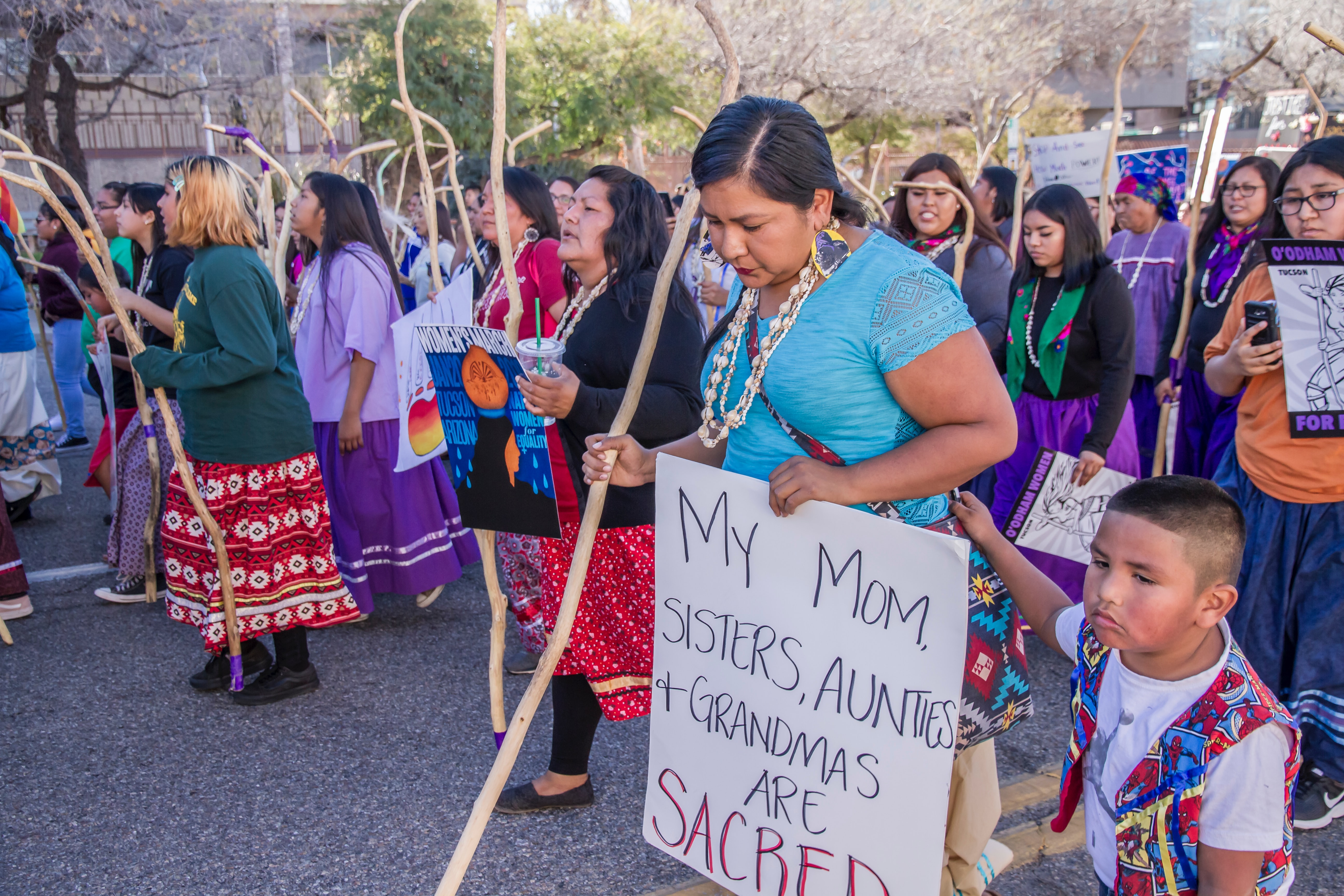 The National WIC Association (NWA) represents 33 Indian and Native American State WIC agencies, a number of local agencies delivering targeted services to both urban and rural Native populations. We celebrate the full range of communities, histories, and cultures they serve. We honor the contributions that they have made to the fabric of our Nation.
The National WIC Association (NWA) represents 33 Indian and Native American State WIC agencies, a number of local agencies delivering targeted services to both urban and rural Native populations. We celebrate the full range of communities, histories, and cultures they serve. We honor the contributions that they have made to the fabric of our Nation.
The rich diversity of our Indigenous peoples includes 574 federally recognized tribes and more than 5.2 million people who identify as Indigenous. Each tribe has a distinct culture, recipes, clothing, and traditions.
Historical trauma – often the result of theft and displacement from their traditional homelands – and the erasure of Native American cultures have contributed to health disparities in many of these communities. Native Americans continue to face systemic inequities that adversely impact their health and wellbeing.
Racism is a public health crisis. Many Native communities face limited access to critical resources including public transportation, affordable and nutritious food options, clean water, and quality health services, including birthing centers.
Native Americans have been hit hard by the COVID-19 pandemic. American Indians and Alaska Natives have high infection rates and are 5.3 times more likely than white people to be hospitalized from COVID-19, the largest disparity for any racial or ethnic group. Additionally, many public health data sets - including some USDA reports - exclude these populations altogether.
Maternal health is another area of health inequity. American Indian and Alaska Natives are 2.3 times more likely to die of pregnancy-related causes than white mothers, and in urban areas, they are 4.5 times more likely to die. Some USDA data reports don’t specify or break down data on Native women, which is discussed in NWA’s maternal mortality report. Solutions to the nation’s maternal health crisis must be inclusive of Native women.
As part of broader efforts to create a more equitable society:
NWA recommends that USDA-FNS support the cultural food preferences and special dietary needs of Native WIC participants by requiring additional options for the WIC food categories.
NWA convened a task force focusing on maternal mortality. Members published a position paper and report titled WIC’s Role in Addressing Maternal Mortality, which includes the task force findings and recommendations for WIC. Page seven of the report details maternal mortality within Native communities.
NWA continues to advocate for critical legislation that addresses disparities in maternal health. This includes the Momnibus, championed by Sen. Kamala Harris (D-CA) and Reps. Lauren Underwood (D-IL) and Alma Adams (D-NC) and other provisions that include Native women in bills and policies, incentivize diversification of the WIC workforce, and provide implicit bias training to current WIC staff.
NWA’s Breastfeeding Promotion Committee includes an active Indian and Native American representative who serves to represent the voice of the Indigenous community. In WIC, breastfeeding is successfully promoted in Indigenous communities through the breastfeeding advocacy of Indigenous State and Local WIC leaders. NWA also participates in Native Breastfeeding Week, promoting information and resources throughout the second week of National Breastfeeding Month.
NWA works in partnership with the National Indian and Native American WIC Coalition (NINAWC).
NWA supported the passage of the Not Invisible Act and Savanna's Act. Both were recently signed into law and aim to strengthen the federal response to the crisis of missing, murdered, or trafficked Indigenous people, especially women.
NWA is pushing for reauthorization of the Violence Against Women Act (VAWA). NWA has joined a chorus of other organizations to call for the reauthorization of the VAWA. Historically a bipartisan act, the VAWA originally passed in 1994 and has been renewed three times. It is a collection of programs, initiatives, and actions designed to improve responses to violence against women, including provisions for Native women.
NWA supports the food sovereignty movement. Sovereignty seeks to assure that independent Indigenous Nations, manage their own land and governments, including school, health, and food systems.
NWA seeks to raise up American Indian and Native voices on all of our committees and task forces. Interested Indigenous representatives should contact Emily Gilcher, NWA’s Senior Education and Membership Engagement Manager, at [email protected].
National WIC Association: Native American WIC Resource Page.
National Indian Health Board: COVID-19 Tribal Resource Center.
Center for American Indian Health: COVID-19 Materials Created for Tribal Use.
Massachusetts General Hospital: Mental Health Resources for Black, Indigenous, and People of Color.
NPR, RWJF, Harvard: Discrimination In America: Experiences and Views of Native Americans.
Reclaiming Native Truth: Changing the Narrative About Native Americans: A Guide for Allies.
Age of Awareness: Decolonizing Thanksgiving: A Toolkit for Combatting Racism.
Massasoit College: Native Perspectives: Information & Resources on History, Equity, and Activism.
Teen Vogue: Invisibility is the Modern Form of Racism Against Native Americans.
Insider: 7 Things You Should Never Say to a Native American.
Vice: 100 Ways to Support—Not Appropriate From—Native People.